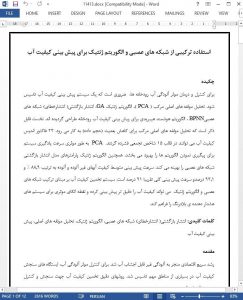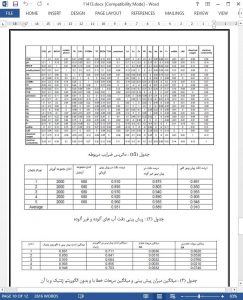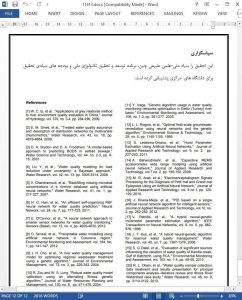Abstract
To effectively control and treat river water pollution, it is very critical to establish a water quality prediction system. Combined Principal Component Analysis (PCA), Genetic Algorithm (GA) and Back Propagation Neural Network (BPNN), a hybrid intelligent algorithm is designed to predict river water quality. Firstly, PCA is used to reduce data dimensionality. 23 water quality index factors can be compressed into 15 aggregative indices. PCA improved effectively the training speed of follow-up algorithms. Then, GA optimizes the parameters of BPNN. The average prediction rates of non-polluted and polluted water quality are 88.9% and 93.1% respectively, the global prediction rate is approximately 91%. The water quality prediction system based on the combination of Neural Networks and Genetic Algorithms can accurately predict water quality and provide useful support for realtime early warning systems.
1. Introduction
Rapid economic growth inevitably causes water pollution. To effectively control water pollution, automatic water quality monitoring stations are built in many important districts. Accurate water quality prediction methods are very important to monitor and control water pollution timely. Therefore, a powerful water quality prediction methods are vital when automatic water quality monitoring systems are established.
4. Conclusions
We present a water quality prediction model that combines PCA, BPNN and GA. Using BPNN model to study water classification and prediction can overcome disadvantages including the large workload of traditional evaluation methods and strong subjectivity. This model possesses objectivity, universality and practicality. PCA converts the multi-indices into a few aggregative indices with little original data information loss and reduces the input data to speed the training process. Using GA to optimize network parameters can effectively prevent the search process from converging to local optimum solutions, optimize global optimal network parameters, and significantly improve the accuracy of water quality prediction. This model makes full use of the advantages and characteristics of PCA, BPNN and GA algorithms to predict water quality. This model can obtain high training speed and good prediction rate and can be extended to other classification problem.










